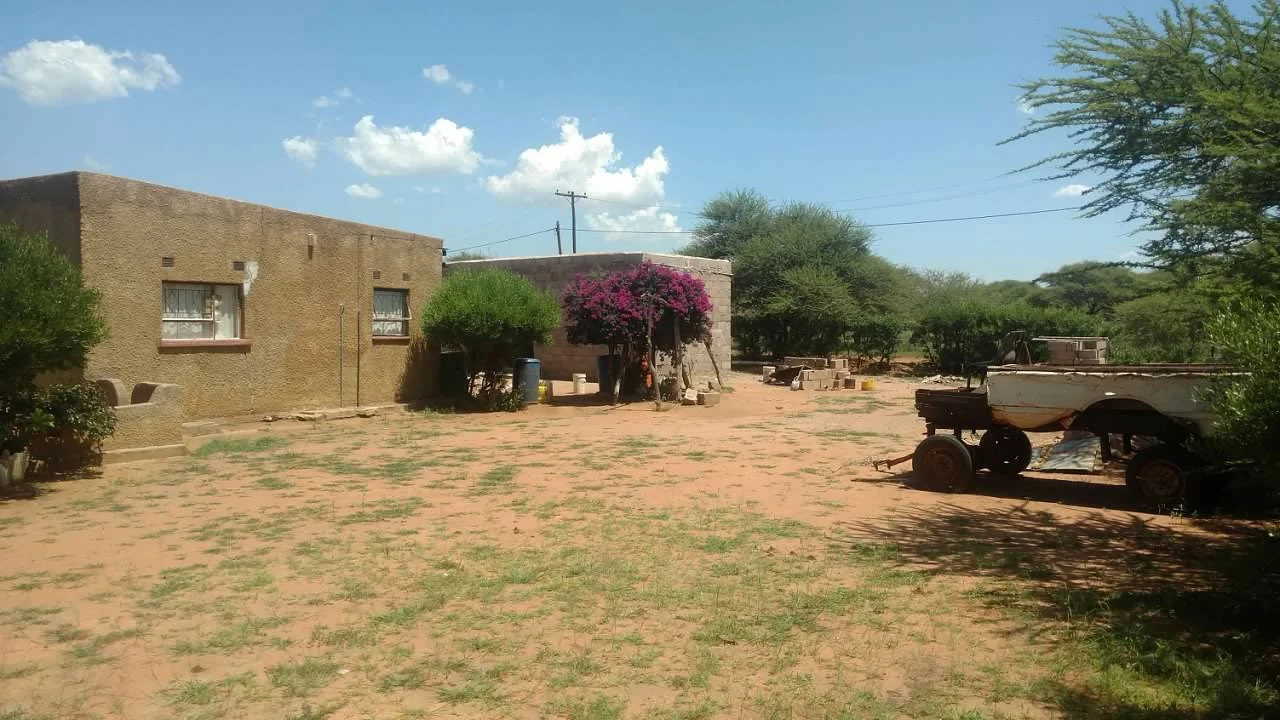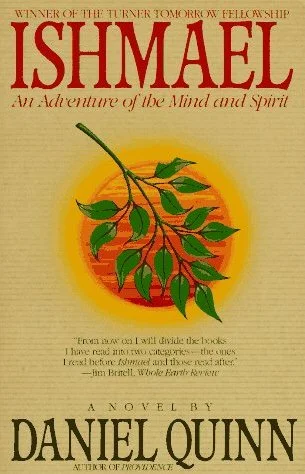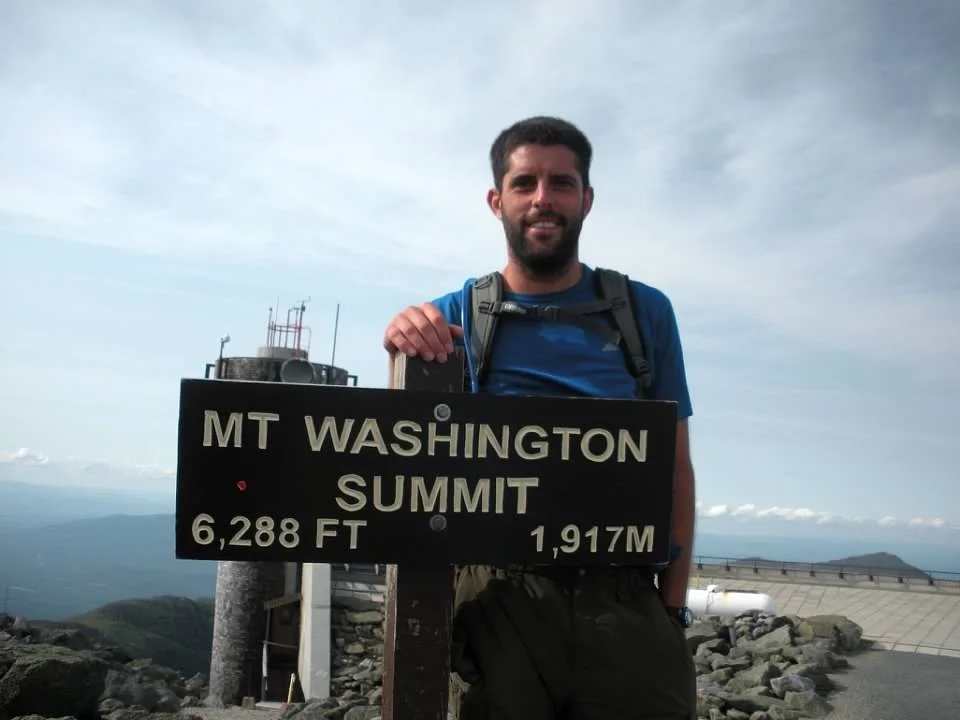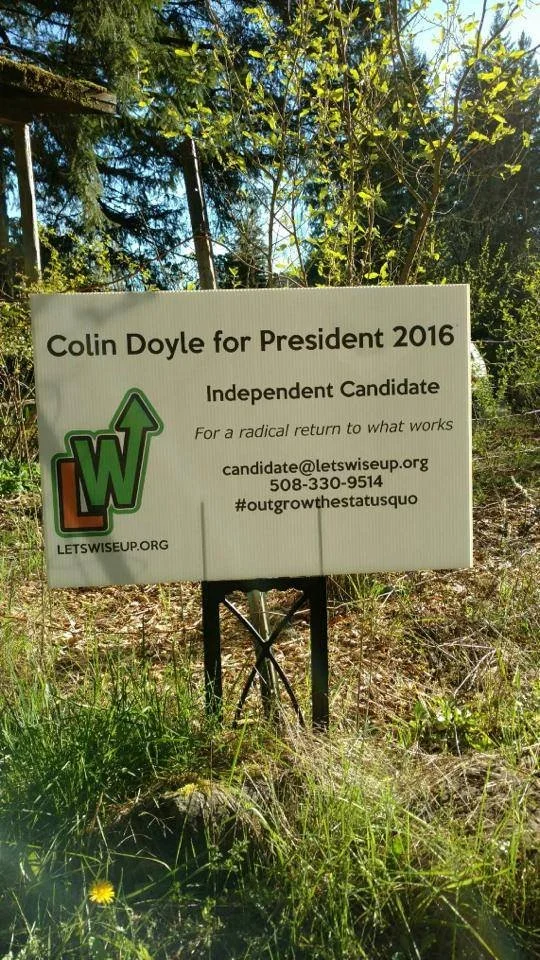Colin’s Journey
I’m Colin, half of the pair that founded and runs Finca Mālama. For the curious, here is an extensive rundown of my life up until now.
Roots
I was born Colin Brian Doyle III on December 4, 1978. Actually, not the Third - that just sounds humorously regal. :) My family lived in suburban Massachusetts USA, where they still live. In fact, my parents have been in the same house we moved into when I was 6 years old, and have been married for over half a century! My only sibling, an older brother, lives in MA too, with his wife and kids.
Our town was quiet and wealthy. My strains as a child weren’t related to poverty or violence, but more affluent troubles like school pressure, immature kids, and the mouth pain of having braces. I internalized the message of getting good grades, and from first grade on I can remember having lots of homework and seriousness around school-related things. I liked sports, but wasn’t a rough-and-tumble boy like my brother. I spent a LOT of what would now be called screen time, playing video games and watching TV and movies. I was a big pro and college sports fan, as was the rest of my family. During summers we spent a lot of time in Maine, where my Dad associates with being from. We had a rustic summer cabin there and that state was the hub for relatives.
College Era
Where I came from it was assumed that upon graduating from high school, everyone goes to college who has the ability and finances to do so. I did well in school, so it was just a question of which region and which college I wanted to shoot for. I never considered staying in the Northeast - why would I do that? I matriculated at William & Mary in Virginia, and was there the usual four years.
College was great for broader exposure, in this case to things like the South, recreational sports, more diverse people, and lots of options for academics. Most of the subjects didn’t actually interest me, though, and I chose the only major that I actually had interest in - anthropology. Studying culture was great for me, and I’ve had an interest in people and languages around the world ever since. That included a semester abroad in Botswana in southern Africa, which holds a special place for me as my first spot in the Global South. I got to experience a great cross-section of that society, explore new ecosystems, and be immersed in someone else’s world. I went from being scared to step out as a foreigner to accustomed to being the only white person in a village. The experience of feeling like a vulnerable minority was very valuable, and something I think every privileged person should do to humble themself.
The most profound thing that happened in college was reading the book Ishmael. It was assigned for a class, and I am forever grateful to the professor who did so. If you haven’t read it, I can tell you the plotline isn’t exciting - it’s basically an extended conversation between a teacher and a student. But it’s an unconventional relationship - for example, the student is in their 40s. But the takeaway for me was groundbreaking - it brought out something I already knew but hadn’t realized. Developed, industrial, “civilized” society should not be the role model for the world, but rather indigenous people. Instead of following moderners with their rapidly expanding technology, we should be following people who have been doing something similar for thousands of years. Go with what shows itself to work. So U.S. society has it all backwards. Not surprising.
After reading Ishmael, I got sad about the state of the world and the burden I bore to change it. I found some like-minded people and that helped. And touted the book and interned for an organization it mentioned. I haven’t felt mainstream-y since, a quarter-century ago.
Entering Adulthood
After college I didn’t have interest in a career - those have always seemed too forced to me, and I know most people in the U.S. don’t like their job anyway. I visited Venezuela for two months with a best friend, and then kind of stumbled around for what to do. International volunteer work seemed ethical and interesting, and I eventually found something in that vein that I could afford, through an organization in Denmark. I did an 11-month program that was centered around me being a manager for 6 months in a HIV/AIDS program back in Botswana. It was a happy reunion for me, and challenging work to collectively supervise 45 locals who were up to twice my age.
The program included 4 months in Europe before heading to Africa, and some time afterward training the next group. I then traveled around Europe visiting friends I’d made. Visiting many places in the world is something I’m proud of, and my current count is around 40 countries and 40 U.S. states.
Big Change of Plans
After returning to the U.S. after a year away, I was uncertain about what to do. I was planning something tame and conventional, but had an unexpected episode of insight. One day I was sitting on my bed at my parents house and had a wave of emotions come over me. When I opened my eyes I saw a poster on the wall, a trashcan, a car passing in the street. It all seemed so empty, and represented an empty society. I decided to leave it. In retrospect, this was the first time my heart felt aligned with my brain around the message from Ishmael.
I decided to move indefinitely to a remote indigenous community. Finding and connecting with one sounded almost impossible, especially speaking only the most colonialist of languages. But there was a tribe and village I knew a little bit, from that visit to Venezuela two years before. I decided to go there. To give myself resolve in the face of questioning by others, for the first three or four days after this strong experience and decision, I kept in my pocket as a kind of talisman a little deer horn I’d been given by an elder in that village on my first visit - I would rub my fingers on it for support.
Venezuela
My friend and I made a plan to go to the area (called the Orinoco Delta) a few months later - him to visit and me to stay. We tried to send a letter ahead to tell them we’re coming and ask if I could live with them, but it was mostly an act of faith. On arrival we explained the situation and they said yes, I could live with them indefinitely. They had had a few anthropologists stay with them before, so were used to outsiders being in the family. I moved there to live for a few months or a few years, or if I liked being there and they liked having me, maybe forever.
I joined the family as basically a cross between a visitor and a family member. Life deep in the Orinoco Delta was FAR more basic than any of my previous living situations - by comparison our current life in Costa Rica is filled with luxuries that didn’t exist there. I slept in my hammock (they don’t have beds or furniture) in a shared thatch house, ate an undernourishing diet of two meals per day, and stopped paying attention to clocks and time. They speak a mixture of Spanish and Warao, so I studied both daily. The language and culture difference was difficult, partly because most Warao are quiet and humble and it’s hard to get them to say very much, especially in the vein of feedback or direction. The family accepted me well, but I never felt fully integrated. I tried to help out with work every day, but it was mostly small tasks like chopping wood and filtering drinking water. After living in the household of two different brothers for 4-5 months each, I gradually determined that the life there wasn’t for me long-term. This was the first indefinite life situation I’d been in - before that everything had an end date. So the question was always in the back of my head if I wanted to do this forever. My answer was no, so I moved back to the U.S. after most of a year in the Delta.
Grad School
What was next for me? Upon leaving college, I hadn’t planned on going to graduate school, but if I were to, I thought it would be for something important like philosophy or religion that gets at the basics of life. I came around to wanting that, to think about what happens after death or before birth, the meaning of life, etc. So I pursued a graduate program to make me study such things, because I observed that I wasn’t doing it on my own. Back at my parents’ as my usual home base between chapters, I researched programs and visited some in person. I ended up at Duke University in North Carolina, doing a Master’s in Religion.
I enjoyed being back in a college setting, with plenty of action to choose from and people from all over the world. I mostly defaulted to the usual student mode of doing the minimum work to get by, which was understandable given the near-infinite reading load that was assigned to me for classes. I got a good sense of what grad school is about, and was satisfied to move on after my two years.
To Africa Again
At that point I decided that I had received enough gifts and support from society and family, and needed to fill a more giving role thereafter. I wanted to work in the field in relief and development in sub-Saharan Africa, but it took forever to find anything in that world, especially as a person who’s never intentionally networked. I ended up with an internship in Sierra Leone and Liberia, splitting 5 months between the two countries. I mostly worked in an office, but lived with local staff and got to see a decent amount of both countries.
Soon after arrival, though, I had an insight that changed my direction. I came to see that what those places need - and the world in general - is not what international NGOs try to offer, like access to clinics and schools, girls’ empowerment or microbusiness loans, but rather a stable ecosystem. Environmental work is the base - if we keep killing off the natural world and replace it with toxins and rising seas, none of that other stuff matters. First things first.
Environmental Education
So I spent part of my free time in West Africa making a plan for what’s next. I landed on work back in the U.S., doing environmental education. It was an accessible way to directly influence people in an eco-positive manner while having some fun and being in rural areas. I did this in the mountains of New Hampshire and California during the school year, while leading summer trips with teenagers in backpacking, canoeing, and other sports.
Eventually this, though, didn’t feel like it was getting at the core of what needs to change in modern society. A week of ecological games and lessons in the mountains is a great influence on 5th- and 6th-graders, but is too little too late because the other 51 weeks of their year pull them in the opposite direction. I spend a lot of time thinking about where change is made in a society, and where I could leverage my abilities in a way that I would also enjoy. I read pieces and asked the opinion of people I respected. My conclusion echoed my Ishmael understanding: “developed” society with its towns and cities and countries is a recent experiment that is going to burn itself out soon. The future is the past, in villages - that’s where humans live. So I decided to support the village model, and do it in my own country/language/culture, because it is the U.S. more than any other place that needs to change, to stop being such a poor role model for the rest of the world that largely follows it.
Intentional Community
I settled on ecovillages, intentional communities focused on their environmental influence (more so than communes in the social realm or spiritual communities). I searched the West Coast and Southwest for ones that were big enough and well established enough to join, and picked what seemed the best option. After a massive solo trip through National Parks in which I hitched 48 rides and experienced lots of ups and downs, I checked in to Lost Valley Educational Center in Oregon.
Lost Valley is a land-based community plus education & event center. I liked its outward focus on spreading community practices and teaching permaculture, as well as its location in the hills outside Eugene, OR. I came in as an intern, but there was immediately a financial earthquake, and community cohesion was very low. I soon became the #2 administrator, and we succeeded in keeping the organization from going under. I became Education Director and Event Director, running a few permaculture programs each year and hosting outside groups that rented part of the facility.
I learned a lot at Lost Valley, like how to facilitate community and business meetings well, softer communication, gardening, vegan cooking for groups, how communities run, and the back-end of a nonprofit. I worked hard for low pay. Over time the community got more and more solid, in spite of living in a society designed against sharing.
Upon reflection, I think the reason the community worked so well for me is because of the three Ps: purpose, people, and place. The purpose of Lost Valley was to live out and spread cooperative community living and permaculture. This fit me wonderfully, supporting a modern permutation on village life and having a good environmental influence based on realistic human needs. The people were great too, as far as most residents and students, as well as the people who would come to our monthly ecstatic dance gatherings. The place served me well, in the regal tall and lush forests of Oregon, with lots of great hiking in the Cascades within a short drive, as well as about the best support town you could ask for in the U.S. in Eugene. So the three Ps went 3-for-3 - it makes sense I stayed so long. :)
You did what?!
In 2015 a new project popped up. While doing extensive weeding in the Lost Valley gardens, I chewed on the mental exercise of what I would do if I were suddenly President of the United States. It was an interesting topic. Then the idea came to me of running in that current cycle and actually offering to be President. It was an outlandish idea, profanely democratic. Yet it kept coming back to me, and getting more and more compelling. So I decided to indeed run for President in the 2016 election. I created a website (letswiseup.org), a logo and LLC, filed the simple paperwork with the Federal Election Commission, and was official. My platform wasn’t based on symptom management and tweaks like TV candidates. The core metaphor for me was that society is like a ship, but we’re not out cruising in open waters. We’re grinding up onto a sandbar, and those in the wheelhouse are debating about turning a little more to the left or a little more to the right. There are individuals (like environmental activists) seeing this happen, and they are trying to paddle against it, but have no real effect. What we really need is people in the wheelhouse reversing the engines, and that’s what I offered to do -- U.S. society needs to change so drastically and so quickly that change is needed from both the top and the bottom.
My platform was based on three things: environmental responsibility, the nuclear threat, and democratic engagement. A second guiding visual was Uncle Sam shooting himself in both feet - one with a BB gun of environmental damage, endless little shots that add up over time, and the other with the nuclear shotgun (double barrel, to signify nuclear weapons and nuclear power) that rarely goes off, but when it does it’s a catastrophe. First things first - let’s stop shooting ourselves in the feet. Additionally, actually get people engaged in the democratic process. When people turn off the sugary distractions and get involved, the results are automatically going to get better than they currently are.
Running for President was a side gig for me, so it mostly consisted of about 10 hours a week of my time, plus a little bit of others like a marketer, tech person, and bookkeeper. I knew a campaign can be an infinite money suck, so I decided on a maximum amount I was willing to spend, and cut off employing people then. I got very little traction outside people who already knew me (except with West Africans on facebook - I don’t know why), and the nearby media I contacted took no interest in a local candidate. So I got a small number of write-in votes and that was it. But I did my part for democracy, offering a very rare candidate I could actually get behind - in fact, it was the first time in 40+ years together that my parents ever voted for the same person for President. And I learned a lot about running a business, like setting up a website and reporting requirements.
Transitioning Toward Relationship
In 2019 my parents sold the simple cabin in Maine that had been in our family since its construction in the 70s. I received some of the windfall, and that helped me not need to work for money as much. I handed off the education coordinator job after running three years of permaculture internships and five seasons of a three-month residential sustainability program. I decided to focus less on being a productive good boy and more on the world of relationships. I set up a Tinder profile and got started.
The only date I went on was with a local woman named Tiffany. We became friends, then partners, and now many steps later are your hosts at Finca Mālama. :) This is where my personal history becomes our history. If you want to know more about where we scoped out to live, what we were looking for, why we chose Costa Rica, and why we chose San Vito and this particular property, check out the separate blog post about that.
Reflections on my trajectory
In reflecting on my life path, it could easily be seen as scattered steps that are very different from each other. What could tie together anthropology, studying and volunteer work in Africa, Ishmael, the delta, a Master’s in Religion, environmental education, running trips with teenagers, living in an aspiring ecovillage, running for President of the United States, organizing sustainability programs, living in Latin America, and running a health farm? A through-running theme I see is the pursuit of what is true and good, moving away from the falsities that are central to so much of U.S. life, instead toward substance. And enjoying myself in the world while being ethical. I have valued experiences over possessions, always with a mind toward not being too fancy. You might say part of the reason I have done so many varied things is because there are few outlets for doing good in our society. At least in North America, life is centered around doing meaningless jobs to acquire social status and material items. Those who try to truly benefit communities or the natural world swim upstream the whole time, and either give in or stay poor. There are few outlets for actually doing good that make for a comfortable life. So I’ve mostly chosen frugal options at the edge of cell coverage.
I’ve also mostly chosen the big steps in my adult life based on feeling, satisfaction, and meaning. In the day-to-day I often focus on practicality and what makes sense, using rationality to deal with logistics. But for the big stuff I’ve tuned in adeptly, and feel like I’ve had a compass since 1999 that has led me well. And now you get to see the current fruits of it. :)
Other Specifics
Zodiac: Sagittarius sun, Aquarius moon, Aquarius rising
Human Design: 1/3 Manifesting Generator








